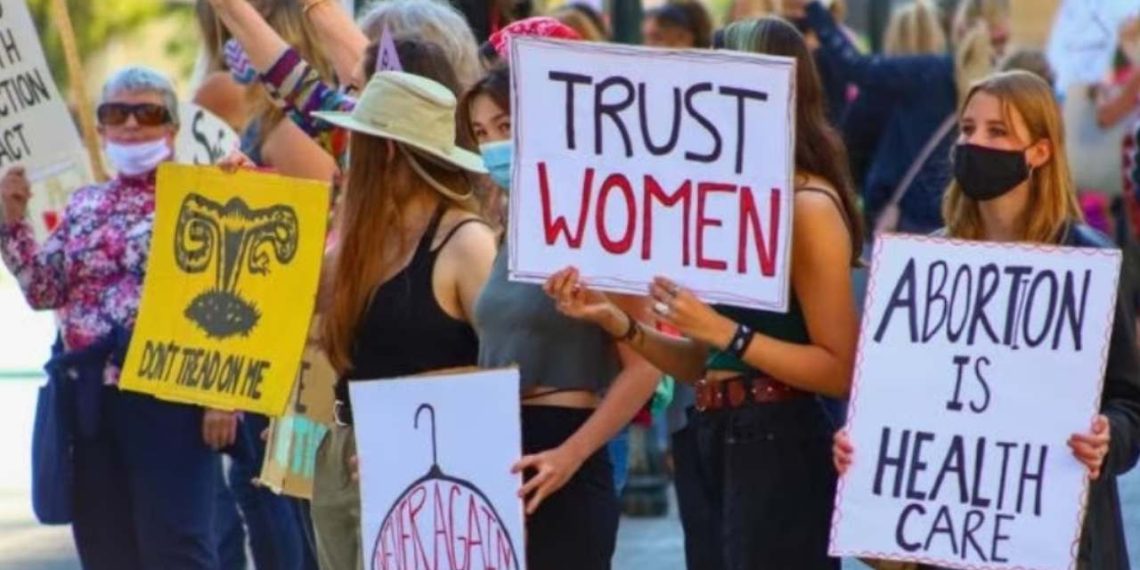France has made history by becoming the inaugural nation to explicitly incorporate the right to abortion within its constitution. Members of Parliament ratified the amendment to the country’s 1958 constitution, solidifying women’s “ensured freedom” to terminate pregnancies.
With an astounding vote count of 780-72, parliamentarians at Versailles erupted into applause as the outcome was declared.
President Emmanuel Macron hailed the decision as a source of “French pride,” underscoring its significance as a “universal message.”
Nonetheless, opposition from anti-abortion groups and the Vatican has been vocal against the amendment. Abortion has been legal in France since 1975, and recent polls indicate approximately 85% of the population favored constitutional protection for this right.
While some other countries incorporate reproductive rights in their constitutions, France stands out as the first to explicitly guarantee abortion.
This amendment marks the 25th alteration to France’s contemporary founding document, and notably, the first since 2008. In the aftermath of the vote, the Eiffel Tower in Paris illuminated in celebration, bearing the message: “My Body My Choice.”
Prime Minister Gabriel Attal cautioned parliament before the vote, emphasizing that the right to abortion remained “in danger” and subject to the discretion of decision-makers.
“We’re sending a message to all women: your body belongs to you and no one can decide for you,” he added.
Although resistance from right-wing factions in parliament was minimal, President Macron faced accusations of leveraging the constitution for political gains. Critics argue that while the revision itself isn’t inherently wrong, it’s deemed unnecessary. They accuse the president of utilizing the cause to bolster his left-leaning image.
Since 1975, the abortion law has undergone nine updates, each aimed at broadening access.
Notably, France’s constitutional council, tasked with assessing the constitutionality of laws, has never questioned the matter.
In a 2001 ruling, the council justified abortion within the framework of liberty outlined in the 1789 Declaration of the Rights of Man, technically a component of the Constitution. Many legal experts contend that abortion is already a constitutional right.
The decision to enshrine abortion in the French constitution was influenced by recent events in the United States, where the Supreme Court revoked the right to abortion in 2022. This shift empowered individual states to potentially ban the procedure, threatening the abortion rights of millions of women.
The initiative to embed abortion rights in the French constitution has garnered widespread support.
“This right (to abortion) has retreated in the United States. And so nothing authorized us to think that France was exempt from this risk,” said Laura Slimani, from the Fondation des Femmes rights group.
“There’s a lot of emotion, as a feminist activist, also as a woman,” she said.
But not all support it, with the Vatican repeating its opposition to abortion.
“There can be no ‘right’ to take a human life,” the Vatican institution said in a statement, echoing concerns already raised by French Catholic bishops.
It appealed to:
”All governments and all religious traditions to do their best so that, in this phase of history, the protection of life becomes an absolute priority”.





